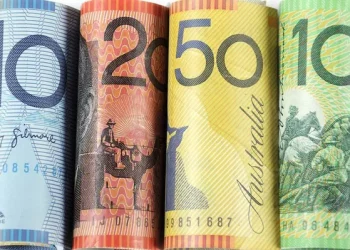In the realm of international finance, understanding currency exchange rates is paramount for individuals and businesses engaging in global transactions. The value of currencies fluctuates constantly, influenced by a myriad of economic, political, and social factors. For individuals holding Euros and contemplating their worth in British pounds, it’s crucial to delve into the dynamics of currency conversion. This article provides a comprehensive analysis of converting 200 Euros to pounds, encompassing the current exchange rate, conversion calculation, factors influencing exchange rates, forecast and trends, financial advice, legal and tax implications, economic indicators, and global market impact.
Current Exchange Rate:
As of the time of writing, the exchange rate between the Euro (EUR) and the British Pound (GBP) fluctuates daily, subject to market forces. To obtain the most accurate conversion, it’s essential to refer to real-time data from reliable financial sources, such as banks, currency exchange platforms, or financial news websites. For illustrative purposes, let’s assume a hypothetical exchange rate of 1 EUR = 0.86 GBP.
Conversion Calculation:
Converting 200 Euros to pounds involves a straightforward mathematical calculation using the prevailing exchange rate. Utilizing the assumed rate of 1 EUR = 0.86 GBP, the conversion equation is as follows:
200 Euros * 0.86 GBP/EUR = 172.02 GBP
Thus, 200 Euros equate to 172.02 British pounds under this exchange rate.
Factors Influencing Exchange Rates:
Exchange rates are influenced by a multitude of factors, including but not limited to:
Interest Rates: Discrepancies in interest rates between countries can affect currency values. Higher interest rates generally attract foreign investment, leading to an appreciation of the respective currency.
Economic Performance: Strong economic indicators, such as GDP growth, low unemployment rates, and stable inflation, can bolster confidence in a country’s currency.
Political Stability: Political turmoil, elections, and geopolitical tensions can instigate market volatility, impacting exchange rates.
Trade Balances: Countries with trade surpluses typically experience stronger currencies due to increased demand for their goods and services.
Market Sentiment: Investor perceptions, speculation, and market sentiment play a significant role in short-term fluctuations of exchange rates.
Forecast and Trends:
Predicting future exchange rate movements with certainty is challenging due to the complex interplay of variables. However, economists and financial analysts utilize various models and indicators to offer insights into potential trends. Factors such as central bank policies, trade agreements, and global economic conditions are closely monitored to anticipate currency movements. While forecasts provide valuable guidance, they inherently carry a degree of uncertainty, and actual outcomes may deviate from projections.
Financial Advice:
For individuals or businesses engaging in currency exchange transactions, seeking advice from financial experts or utilizing hedging strategies can mitigate risks associated with exchange rate fluctuations. It’s advisable to monitor exchange rate movements regularly and execute transactions at opportune moments to maximize value.
Legal and Tax Implications:
Currency conversions may entail legal and tax considerations, especially for businesses conducting international trade or individuals residing in different countries. Regulations regarding foreign exchange transactions, taxation on capital gains, and reporting requirements vary across jurisdictions. Consulting legal and tax professionals can ensure compliance with relevant laws and optimize financial outcomes.
Economic Indicators:
Key economic indicators provide valuable insights into the health of economies and can influence exchange rates. Indicators such as GDP growth, unemployment rates, inflation figures, and consumer spending patterns are closely monitored by policymakers, investors, and analysts. Understanding these indicators facilitates informed decision-making regarding currency investments and transactions.
Global Market Impact:
Exchange rate movements reverberate across global markets, impacting various sectors and industries. Exporters and importers are directly affected by currency fluctuations, influencing competitiveness and profitability. Additionally, fluctuations in exchange rates can affect investment decisions, capital flows, and international business operations. The interconnectedness of global markets underscores the importance of monitoring currency dynamics and adapting strategies accordingly.
Conclusion:
Converting 200 Euros to British pounds involves understanding the prevailing exchange rate, considering various factors influencing currency values, and assessing potential risks and opportunities. While exchange rates are subject to volatility and uncertainty, informed decision-making, prudent financial management, and proactive risk mitigation strategies can help navigate the intricacies of currency markets. Whether for personal or business purposes, staying informed, seeking expert advice, and remaining adaptable are essential principles in managing currency exchange transactions effectively.
Related Topics:























